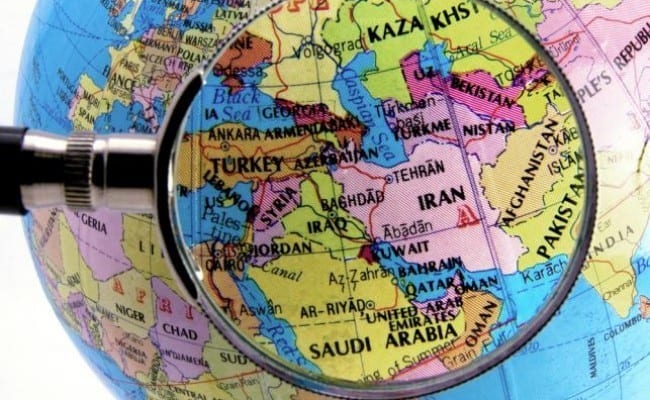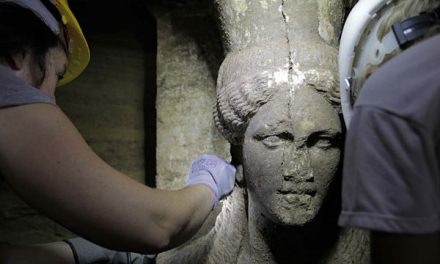We are all involved and all affected by the outcome of the Middle East. Ignoring this fact is irresponsible and shedding light on the worst side of humanity.
In the last six months Iraq has experienced a further destabilizing shift in politics. The Kurdish Government stated during the summer of 2017 that they would hold an Independence Referendum to claim political and territorial sovereignty after Daesh (ISIS) was defeated. As the scheduled referendum approached its voting date of September 25, 2017, outcries from the Iraqi, Turkish and Iranian governments intensified. Turkey made the first militaristic move by stationing their army on the Turkish-Kurdish border in Northern Iraq. Following closely behind, the Iranian and Iraqi militaries joined in pressuring the Kurdish Regional Government (KRG) to cancel the referendum. Undeterred, former Kurdish President Masoud Barzani went forth giving the ‘yes’ vote a 92% approval from the 73% who voted.
Court cases, removals of local leaders, and anti-constitutional claims had little effect making the Iraqi government decide they had no choice but to forcefully take back disputed territory that the Kurdish Peshmerga had gained during the fight against Daesh. On October 16, 2017 Kirkuk became the battleground between the Iraqi military and the Iranian backed Shia militia, and the Iraqi Kurdish Peshmerga forces.
After the referendum the decision for many was not about political freedom but rather choosing carefully who they believed would be the victors of their territory after the dust settled. The Patriotic Union of Kurdistan (PUK) made a deal with the Iranian and the Iraqi governments to stand down in Kirkuk even though the Kurdish Democratic Party (KDP) chose to fight. The Yezidi generals on the western side of Kurdistan chose to stand down to the Shia militia and Iraqi military turning over half of the Nineveh Governorate that was under Kurdish control back to the Iraqi government.
Unfortunately, in an environment that is prone to violence and deeply rotted by ethnic, tribal and religious claims, peace by long-term alliance is nearly impossible being that trust is a vital aspect for diplomacy.
In Iraq, politics is not just another vote for party support; it is a life or death decision depending on who is in power. We have seen this play out time and again under Saddam Hussein, Nouri al-Maliki, Jalal Talabani and now Haider al-Abadi. The difference between Sunni and Shia may play into everyday conversation but alliances are not formed solely based on religion, as seen by the variety of Daesh victims. Political alliances in Iraq, just like everywhere else, are formed on the basis of self-interest and relative gain to accomplish an agenda.
This is also the case regarding politics surrounding humanitarian crises in conflict zones. Humanitarian situations in conflict zones are always dire due to the lack of resources and security. This creates a self-perpetuating cycle making the ones in need resort to desperate measures. In Iraq, the Yezidi population has become one of the minorities hedging their bets on every political party available due to a perception of constant threat to life.
There are Yezidis stationed at practically all major military checkpoints fighting with the PKK (a Turkish Kurdish group) and being recruited by the YPG (a Syrian Kurdish group). Rules and regulations determined by acting international organizations like the United Nations are put in place to reduce political allegiances within camps; however, recruitment still takes place within the loop holes.
For humanitarians and the international community, our objective is to resettle displaced people back to their hometown or village as soon as safely possible. The lack of political will from all sides to work together is strangling the humanitarian efforts that domestic and foreign agents are devoting. I have been told to expect the situation to worsen before getting better. My only question is, what can be worse?
The Middle East does not only have economic and political issues to solve; they are also deeply submersed in at least two active civil wars and several potential violent outbreaks.
Syria is no closer to stability than they were in March 2011. Yemen is the worst humanitarian crisis of the century. Jordan and Lebanon are housing more refugees per capita than nearly anywhere in the world. Saudi Arabia and Iran are continuously trying to extend their reach in the Middle East without maintaining stability at home. Turkey is becoming more authoritarian by the minute. The Israeli and Palestinian conflict appears it will never end. And the one major success story of the Arab Uprisings in 2011, Tunisia, is again in uproar.
Religious, political, and ethnic ideological beliefs run rampant and deep in every conflict and conversation, and intervening third parties seem to continuously support the ‘wrong’ side. The largest threat, ISIS, has been expelled militarily from Iraq; however, this means little when they are seen popping up all over Africa and Asia, and most notably in Afghanistan.
Intelligence from the ground and international sources suggests that the 3,200 Yezidi women and children still held by ISIS have been mostly moved to Afghanistan through unknown means of transportation. This conflict is epic beyond any one actor. The United States and Europe do not have the capacity militarily, economically or intellectually to solve this issue on their own. Each country and each problem are far too intertwined to be mutually exclusive. To create stability in the Middle East, all parties involved (which is much of the world) need to work together and make sacrifices that in the short-term may seem difficult but will ultimately be worth the rewards.
Democratic rights such as those the West has become accustomed to are not seen as inalienable; instead, democracy is merely seen as “preferable” to theocracy. The majority seem to be concerned with simply living until they see their grandchildren, and making enough money to live a decent life. We all said “Never Again” after the Nazi’s unleashed genocide against the Jewish people and nearly conquered Europe. Unfortunately, the situation in the Middle East, too, is a world war. We are all involved and all affected by the outcome of the Middle East. Ignoring this fact is irresponsible and shedding light on the worst side of humanity.



















